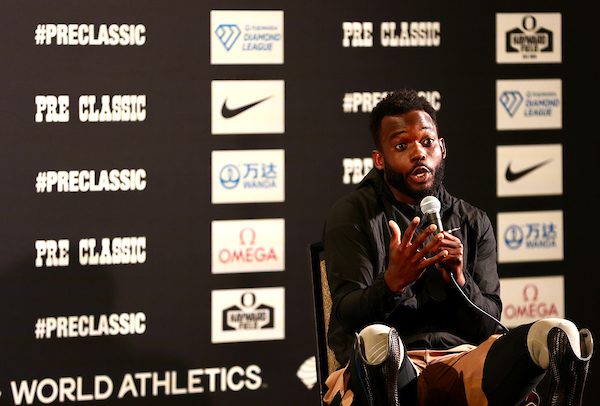Are prosthetic, “man-made” limbs extra environment friendly or highly effective than organic legs? This has been debated in observe and discipline circles for years, however current analysis suggests what amputee runners have identified all alongside–they aren’t. Not less than, not over 400 metres. A current examine from the College of Colorado at Boulder discovered that blade runners, together with the world’s quickest 400-metre sprinter, Blake Leeper of Tennessee, haven’t any aggressive benefit over non-amputee runners. As an alternative, they probably have a major drawback.

Prosthetic limbs, significantly these designed for athletic efficiency, have come a great distance since Terry Fox made his inspiring, but at occasions painful-looking, journey throughout Canada. Within the final decade, we’ve seen amputee runners run ultramarathons and set Guinness World Data, and many people recall Oscar Pistorius, the double-amputee blade runner from South Africa who turned the primary to win a non-disabled medal on the 2011 World Monitor and Subject Championships (he received silver within the 400m). Pistorius was later convicted of homicide within the loss of life of his girlfriend, Reeva Steenkamp, and stays in jail right now.

Again in 2011, Pistorius needed to take authorized motion towards the IAAF (now World Athletics) to permit him to compete within the World Championships, because the governing physique of observe and discipline claimed his prosthetic limbs gave him a bonus over his opponents.
Leeper, who can also be a double-amputee and the quickest blade runner over the 400m distance right now, has confronted related rejection. He was dominated ineligible to compete on the 2020 Tokyo Olympic Video games as a result of notion that his “blades” gave him an unfair benefit.
The examine
Because it seems, two legs do look like higher than none, regardless of the unimaginable expertise behind right now’s prosthetic limbs. The examine, printed within the journal Royal Society Open Science, collected efficiency knowledge from Leeper, Pistorius and 6 different bilateral amputee sprinters and in contrast that to one of the best non-amputee sprinters on the earth throughout 5 efficiency metrics.
Leeper additionally visited the researchers’ lab for a sequence of checks to measure his acceleration out of the beginning blocks, most pace alongside straightaways and round curves, velocity at cardio capability and dash endurance (all-out effort). This data was additionally in comparison with out there knowledge from elite non-amputee runners.
The analysis discovered that runners utilizing prostheses had been 40 per cent slower out of the beginning blocks, had 19 per cent slower velocity at cardio capability and had been one to a few per cent slower round curves, in comparison with non-amputees.
“We discovered that no athlete with prosthetic legs has ever carried out higher than elite non-amputee athletes in lab-based experiments in any measure that pertains to sprinting efficiency,” stated first writer Owen Beck.
The researchers introduced their preliminary findings to the Courtroom of Arbitration for Sport in 2020 in a bid to get Leeper to an Olympic begin line, however the athlete was but once more deemed ineligible–the court docket dominated that his prostheses made him too tall. (The identical researchers had present in a earlier examine that peak didn’t present a bonus in the case of most sprinting pace, however Leeper was nonetheless dominated ineligible.)
Whereas their outcomes didn’t assist Leeper this time, the researchers hope their work will change the dialog to offer extra alternatives for amputee runners.
“A variety of assumptions have been made about working prostheses and efficiency with no knowledge to help them,” stated senior writer Alena Grabowski, affiliate professor of integrative physiology at CU Boulder. “I hope it will get individuals to essentially query guidelines being put into place that maintain athletes with disabilities from competing even once they have proven with science that they will compete pretty.”